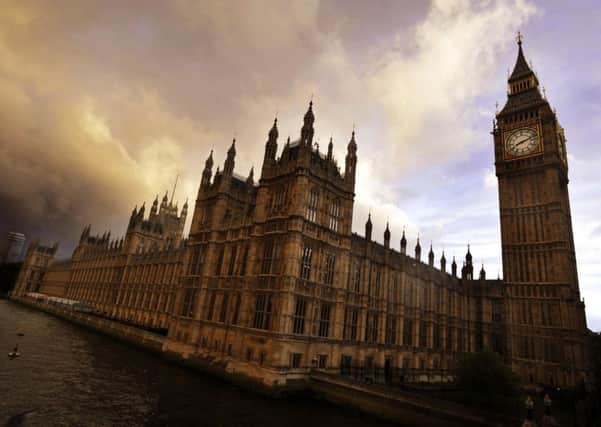We are witnessing the destruction of democracy


That foundation is local government – it is where local people are elected to take decisions on behalf of people in their neighbourhood, but virtually all their choice in making those decisions is being taken away. The latest example is what gave rise to your headline on the threat to local bus services with the effective removal of money from the county council to subsidise bus services which are needed, but not profitable.
This is the most recent of a long line of “death by 1,000 cuts” to what remains of local government in this country. It is local elections that sustain the activity of political parties and motivate people to get involved.
Advertisement
Hide AdAdvertisement
Hide AdWhen I was first elected as a councillor 40 years ago, Burnley was a county borough - an all-purpose authority - and what motivated me to stand was to effect change in the local education system on behalf of my kids. Education, social services and libraries were removed to the county council in 1974 – a large, unwieldy and remote council in Preston.
When the Thatcher Government was elected in 1979, we saw the introduction of the “right to buy” – the sale at knock-down prices of council housing, resulting in the loss of many decent houses available for rent. Later on she abolished the metropolitan county councils, privatised the utilities built by local government and introduced the disastrous Transport Act of 1985, which deregulated bus services. That resulted, largely brought about by the sale by the Lib-Dem council in Pendle of their share, in the privatisation of the local buses to Stagecoach. The Major Government privatised British Rail, and we have been ripped off ever since by the train operating companies, despite a consistent majority of public opinion wanting the renationalisation of the railways.
Even the election of a Labour Government did not stop the rot – the refusal to properly fund the improvement of council houses forced the creation of what became Calico homes. Calico eventually became a successful company but even now lacks the finance to build the social housing that Burnley needs.
We are now faced with the realisation of the nightmare, voiced by Norman Tebbit, of councils meeting once a year to allocate contracts. Decisions about education have been removed from the county council and the social care that old people’s homes provide has been privatised, with scandals of poor care, like Winterbourne View, following in train.
Advertisement
Hide AdAdvertisement
Hide AdThe county council now faces having to make cuts in its budget of £300m. over the next two years and losing 300 staff. It is likely all the LCC’s arts provision and much of its library and museums services will disappear as a result.
Burnley Council is faced with having to make cuts of £5m. and will lose 14 staff this year and more next. It is having to jump through hoops erected by the Tory Government even to get the support grant it does. Those hoops will force the privatisation of support services in revenues and benefits, and the takeover of parks and leisure services by a trust – a privatisation by another name. All that will be left for the local council to do will be to decide who gets taxi licences, and go through the charade of development control – where any major application cannot effectively be opposed despite public opinion as the developer can appeal against the council’s decision, probably win given current government planning “guidance” and get costs awarded against the council.
It is no wonder it is increasingly difficult to find people to stand for local election. For that to change we need to restore a local government worthy of the name, properly funded and with real choices to make; to end the dogmas that private provision is better than public, and that Whitehall knows best. With all the fiascos of contracts with Serco and G4S, the failure to properly regulate the energy utilities, the shambles of the introduction of Universal Credit, and the shame of the need for food banks, surely we now know enough to abandon that ideology of privatisation and cuts to welfare for the poorest. Time to get angry.
Peter Kenyon
Burnley